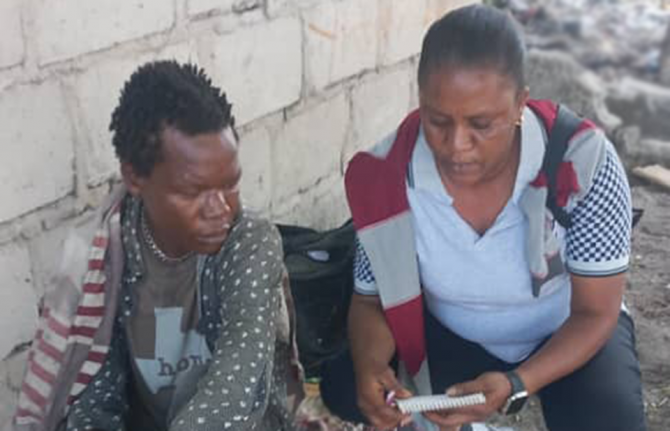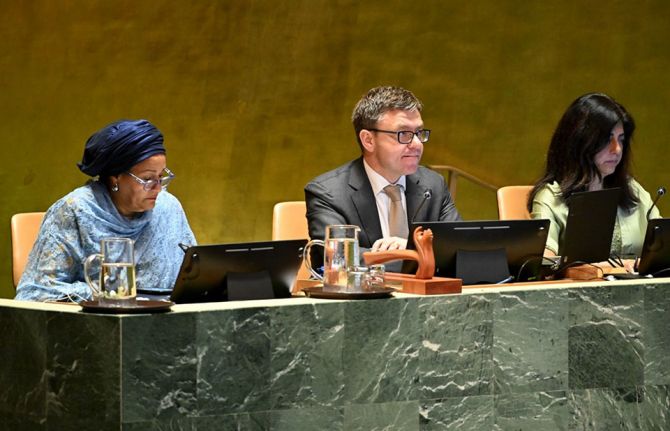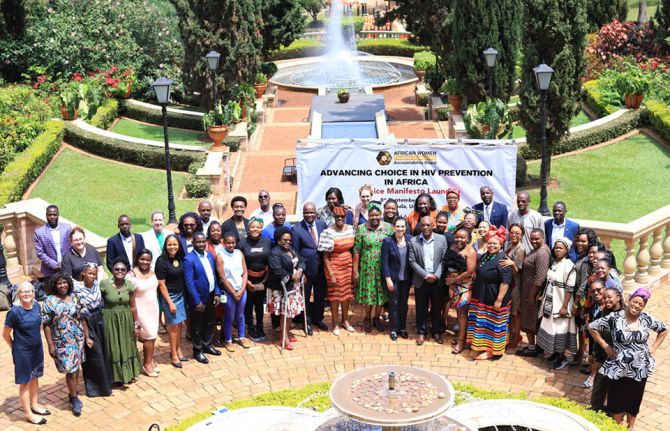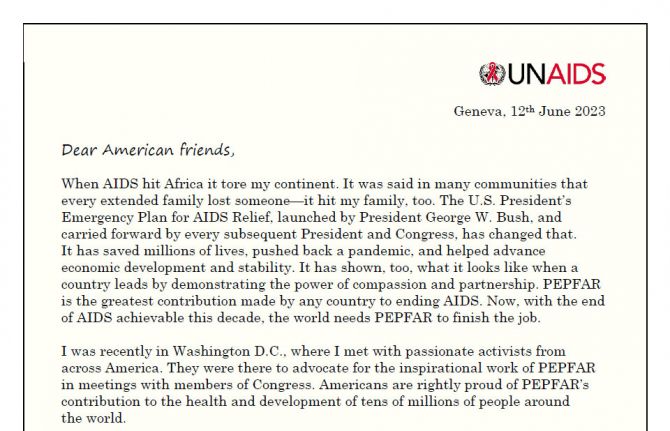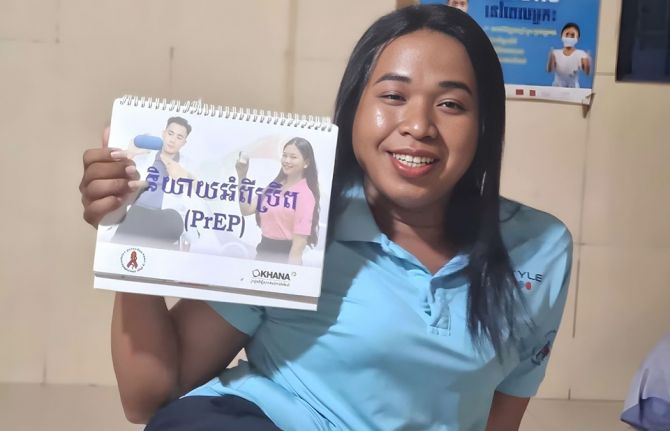
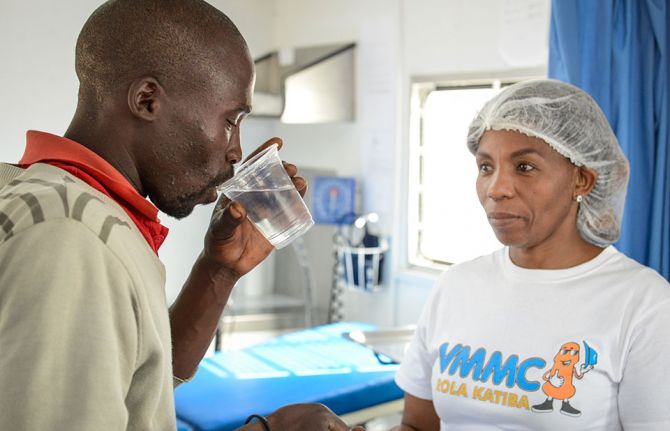
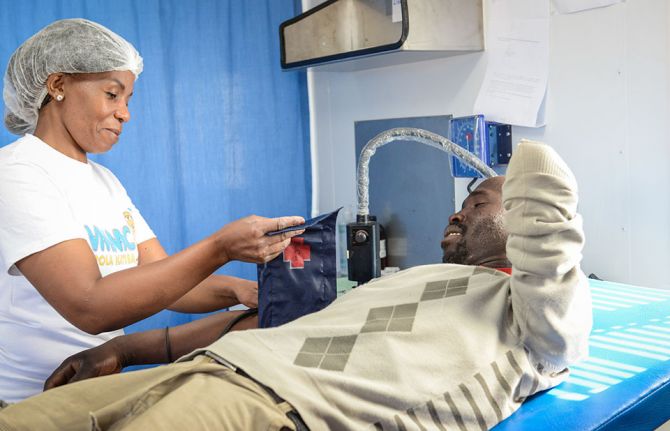
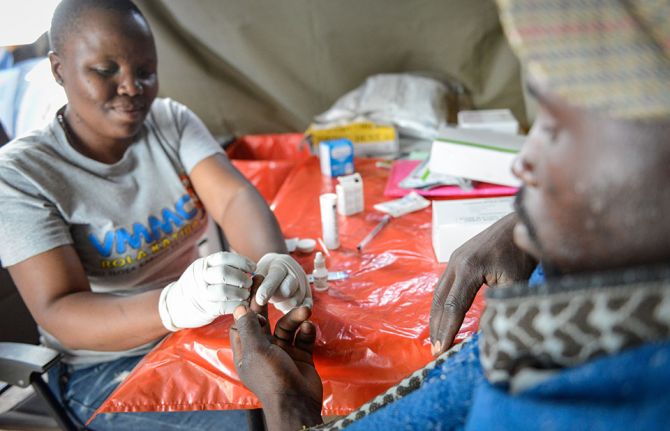
Feature Story
Voluntary medical male circumcision shown to be highly cost-effective, highlighting the need to intensify scale up and sustainability
27 September 2023
27 September 2023 27 September 2023UNAIDS’ Global AIDS Update The Path that Ends AIDS underscores 2 main challenges faced by voluntary medical male circumcision (VMMC) programmes: diminished funding and low coverage among men in their twenties and older. Since VMMC was recommended by WHO and UNAIDS in 2007 as key to HIV prevention in high-prevalence settings, about 35 million men have accessed services across the 15 VMMC priority countries. While this shows good progress, the Global AIDS update highlights that VMMC coverage remains far from reaching the 90% global coverage target for impact in many subnational areas of priority countries. Additionally, funding has declined by almost half since 2020 from approximately US dollars 285 million to US dollars 147 million for the 15 countries funded by the United States President’s Emergency Plan for AIDS Relief (PEPFAR). But questions have arisen about VMMC’s cost-effectiveness under growing coverage of other biomedical interventions, such as antiretroviral treatment.
“We need strong political leadership to scale up implementation of VMMC programmes; tackle the inequalities holding back progress; and ensure sufficient and sustainable funding” said Angeli Achrekar, UNAIDS Deputy Executive Director of Programmes. “Countries that are putting people and communities first in their policies and programmes are already leading the world on the journey to ending AIDS by 2030.”
Voluntary medical male circumcision is a simple, safe procedure that has proven to reduce the risk of HIV transmission by up to 60% in heterosexual men. But is it cost effective? For how long must policy makers continue to promote VMMC among adolescent boys and adult men across VMMC priority countries? This is what a group of researchers investigated.
Now published in The Lancet Global Health and using 5 existing mathematical HIV models, the researchers aimed to assess whether providing VMMC for the next 5 years would continue to be a cost-effective use of HIV programme resources in sub-Saharan Africa. The models applied assumptions based on HIV epidemiology in VMMC priority countries focusing on Malawi, South Africa, and Zimbabwe. The impact and cost-effectiveness were projected over 50 years to capture clients’ lifetime HIV exposure and infection.
Findings reveal that a continuation of VMMC was cost-effective even in regions with low HIV incidence; VMMC was cost-effective in 62% of settings with HIV incidence of less than 1 per 100 person-years in men aged 15–49 years, increasing to 95% with HIV incidence greater than 10 per 100 person-years They underscored VMMC’s importance in continuing to avert HIV infections and related healthcare costs over time.
While details of the results varied by country and model (see Box1), overall VMMC was shown to be highly cost-effective and even cost saving in nearly all countries and scenarios.
| Box 1 Varying results across countries
|
The authors concluded that despite the scale-up of antiretroviral therapy and low HIV incidence in some settings, the continuation of VMMC for at least the next 5 years is cost-effective in almost all settings considered in this study.
“Clearly, intensified efforts and commitments are needed to scale up VMMC while at the same time sustaining these services to reach men and boys,'' said Dr Meg Doherty, Director of WHO’s Global HIV, Hepatitis and STI Programmes. “The new Global AIDS report shows a widening gap for men that is important to recognize and address efficiently and effectively for their own health and to reduce new infections.’’
These analyses support a call to action on intensified efforts to reach men and boys in general and for continued funding for VMMC programmes. The discussion on VMMC sustainability is crucial. UNAIDS and WHO are urging countries to intensify their efforts in scaling up VMMC to global coverage targets (90%), at the same time address programme sustainability.
In the 2025 HIV Prevention Roadmap, VMMC remains a core component of combination HIV prevention under the pillar of men and boys. It is not only cost-effective, but also, cost-saving in many settings. Accordingly, continued progress towards male circumcision coverage targets in all the VMMC priority countries must be accelerated
Our work

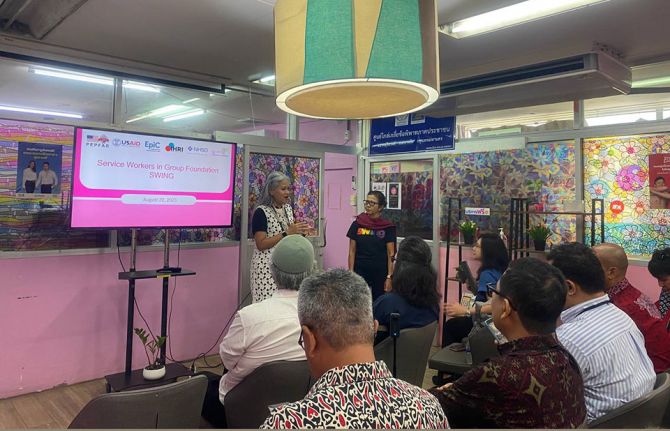
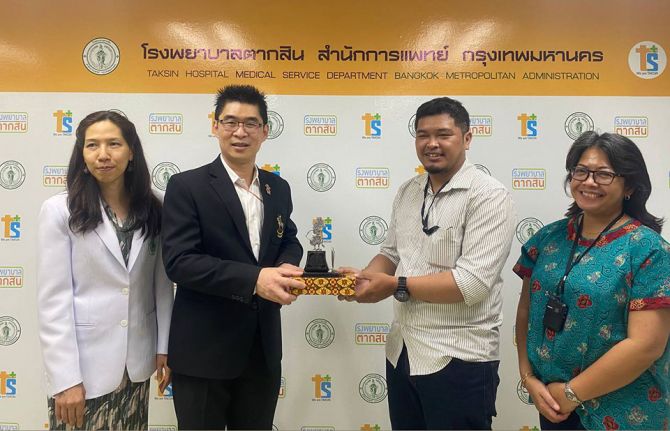
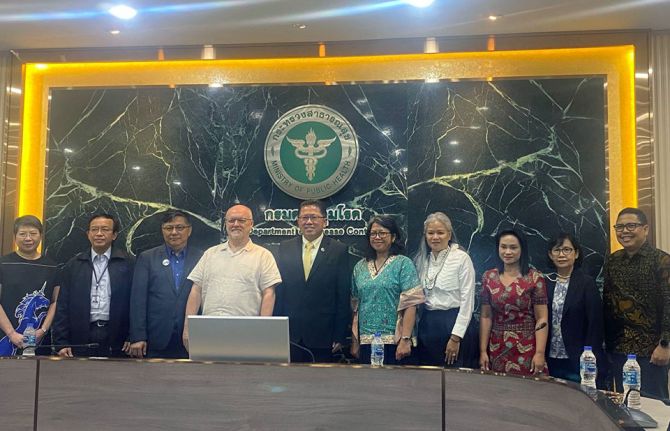
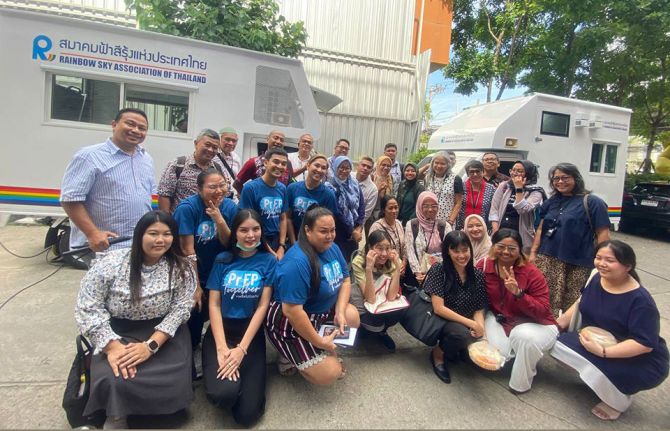
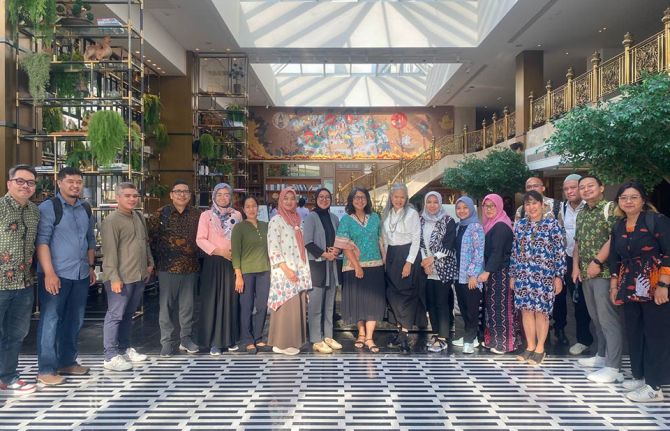
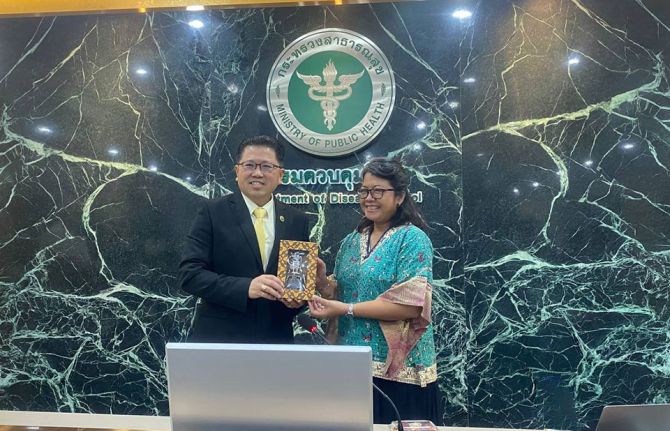
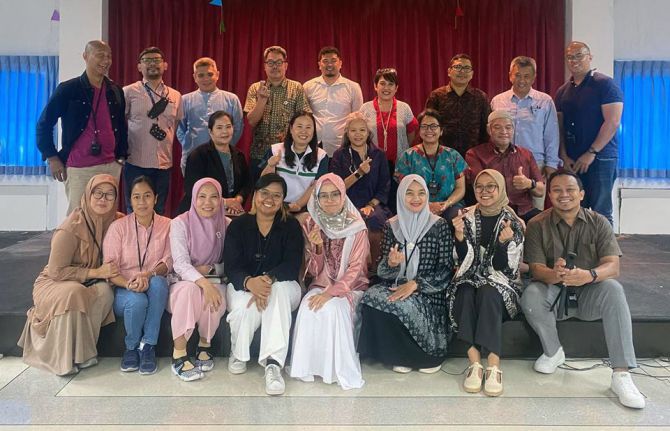
Feature Story
South-to-south — Indonesia and Thailand exchange learning on responding to HIV
15 September 2023
15 September 2023 15 September 2023Thailand’s HIV response can provide important learning for other Southeast Asian countries, with the experience of having already reached 90-90-97 in the treatment cascade in 2022, on the way to the achieving the “triple 95s”. The country was first in the region to eliminate mother-to-child HIV transmission. AIDS-related deaths have declined by 65% since 2010. With support from Australia’s Department of Foreign Affairs and Trade (DFAT), UNAIDS helped organise for Thailand to share lessons it has learned in its HIV response with Indonesia through a south-to-south learning exchange mission of Indonesian delegates to Thailand.
On day one, the Indonesian Ministry of Health and Thai Ministry of Public Health delegates discussed the HIV epidemic, trends, and challenges in each country. They shared insights on HIV prevention, treatment and stigma reduction in the HIV response. The following day, the mission team visited community organisations— including the Service Worker in Group Foundation (SWING), a non-governmental organization working for sex worker rights, and the Rainbow Sky Association of Thailand (RSAT), an organization that offers sexual healthcare for men who have sex with men, migrants, people who use drugs, sex workers and transgender people.
Multidisciplinary care is provided in Thailand to people living with HIV and to key populations through community service providers, incorporating certified community counsellors, medical technicians and caseworkers at the community facilities, and through doctors, nurses, pharmacists and laboratory scientists through the telehealth system.
Indonesia’s delegates on the visit highlighted that they had found helpful areas to improve community engagement in their national HIV programme, with a focus on effectively addressing the barriers and limitations in the HIV response that are interlaced with stigma and discrimination across Indonesia.
“We learned how Thailand prioritised zero discrimination, one of which is developing an e-learning curriculum for healthcare workers to minimise stigma and discrimination in healthcare facilities,” said Dr Endang Lukitosari, who heads the National AIDS Programme of Indonesia’s Ministry of Health.
Thailand’s delegates shared experiences from their community complaint support and crisis response system. Health workers, communities and clients can use QR codes at various locations to report rights violations, promoting accountability and coordination between health facilities and community organisations.
The Ministry of Public Health of Thailand noted that community workers are actively involved in the HIV response throughout a robust system of accreditation for both individual community health workers and community organisations. There are health insurance options for all users, including three that can be accessed by migrants. These initiatives help create an enabling environment, led by the government, to connect communities with marginalised groups and tackle issues such as loss to follow-up.
Indonesia’s delegates noted the significance of community mobilisation in the HIV response and envisaged that by putting community in the centre they would reach the most marginalised and underserved groups across different islands and highlands in Indonesia.
“Thailand's comprehensive service delivery inspired me, especially through the Ministry of Public Health's accreditation and certification system for communities. This cooperative mechanism across the government and community stakeholders is the one we haven’t sufficiently addressed in Indonesia. Perhaps by applying this approach, we can minimise the gaps in the treatment cascade by ensuring we leave no one behind”, said Irfani from GWL-INA, Indonesia’s network of men who have sex with men and transgender people.
Over the five days, Indonesian delegates explored public HIV service centres and treatment facilities in Bangkok, Thailand and learned about how efforts of communities and government in HIV prevention and control could be streamlined and coordinated by enhancing the continuum of care and minimising loss to follow up. Notably, Thailand emphasised integrated, One-Stop, services as pivotal for a successful HIV response. Indonesia’s delegates sought a pathway for sustainability in the HIV programme through lessons from the continuity of HIV treatment services in Bangkok, which connects clients with community clinics and public health facilities through referral system and telehealth.
Delegates agreed that this learning mission highlighted key features in efforts to reduce stigma and discrimination, mobilise communities in HIV response, and improve access to quality healthcare by tackling barriers. In addition, the mission underscored efforts to support the delivery of client-centred services for key populations. The debriefing concluded with a commitment to continue the technical partnership on HIV between the two countries.
"I believe Indonesia can do it," said Krittayawan Boonto, UNAIDS Country Director of Indonesia. "Indonesia is in a similar situation to the one Thailand faced a few years ago. Thailand's strategies contributed to getting closer to their goals. I see potential in Indonesia to accelerate progress towards triple 95s. I hope these learnings from Thailand mission can advance the HIV response in Indonesia. UNAIDS Indonesia will keep supporting efforts to end AIDS by 2030."

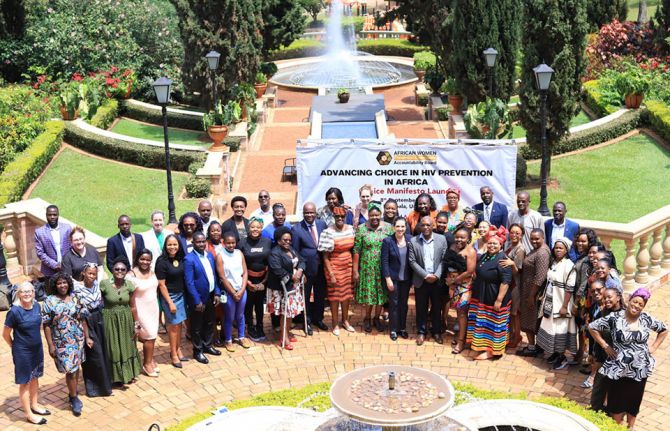
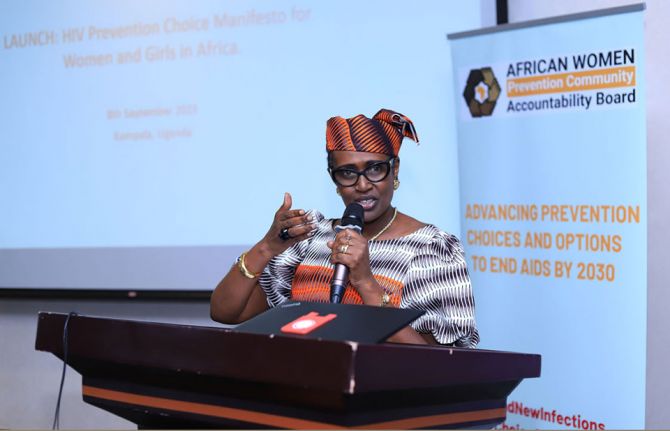
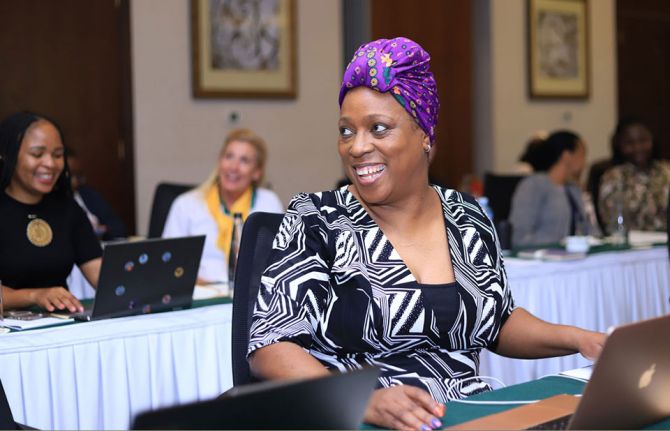
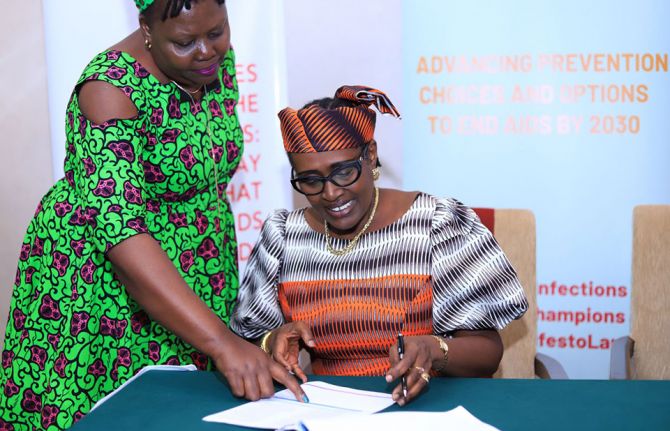
Feature Story
HIV Prevention Choice Manifesto for Women and Girls in Africa launched
12 September 2023
12 September 2023 12 September 2023UNAIDS Executive Director, Winnie Byanyima, joined women’s coalitions, government officials, development partners and community groups from across East and Southern Africa to launch the HIV Prevention Choice Manifesto. Led by the African Women Prevention Community Accountability Board and supported by the International Community of Women Living with HIV (ICW) East Africa and Advocacy for Prevention of HIV and AIDS (APHA), the Choice Manifesto advocates for choice in the HIV prevention options available for women and a commitment to expanding access to long-acting HIV health technologies. Further, these options should be people centred, women-centred and women-led.
In her keynote remarks Ms Byanyima focused on three key areas to making women-centred, people-centred prevention approaches work:
- tackling inequalities for girls and women;
- addressing unequal access to health technologies;
- and putting communities & women in the lead.
Ms Byanyima signed the Choice Manifesto on behalf of UNAIDS and committed to supporting and amplifying the voices of African women and confirmed that UNAIDS will continue to convene partners and government to find solutions.
Quotes
I congratulate you for the HIV Prevention Choice Manifesto. It’s about pushing everyone towards people-centred, women-centred and women-led approaches to HIV prevention. You have fought with your lives to get here. You are fearless feminists. Women must lead for themselves.
We must trust women, let women lead, let African women lead! The AWPCAB board is 12 women from 6 countries from Eastern and Southern Africa. Our focus is on the choice agenda, access and roll out to make sure choice is a reality for all women!
The Choice Manifesto is an important moment in the HIV response and should take its rightful place next to the Denver Declaration and GIPA principles as a watershed moment. Developed and driven by African women for African women and relevant for all women.
Our work
Related


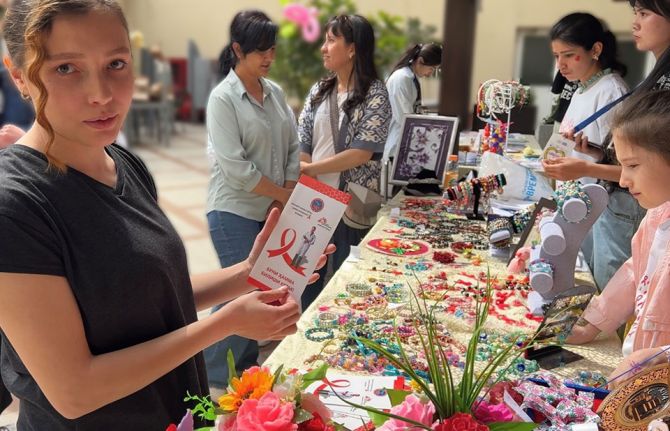
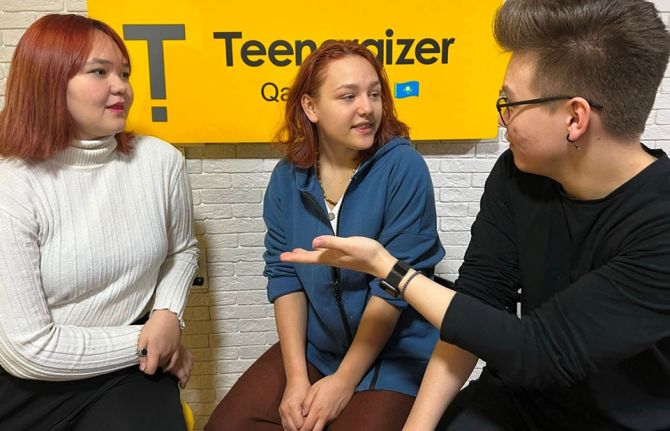
Feature Story
Young role models combat HIV stigma in Central Asia
22 June 2023
22 June 2023 22 June 2023Last year, Elina Kruglova made a bold decision. She disclosed her HIV status during the casting of a popular reality TV show in Uzbekistan.
“I disclosed my status right at the casting because the project lasted for several months, and I needed to take medicine daily,” she said. “I made the decision to be honest and mustered up the courage. I thought they wouldn't accept me, but I passed the casting," Ms Kruglova explained.
In her second-year student in the Faculty of Agricultural Economics at Tashkent State Agrarian University in Uzbekistan, she grew up in an orphanage. She was the first child living with HIV in her country to start antiretroviral (ARV) therapy seventeen years ago. Despite facing stigma, she has been taking life-saving medicine daily.
Uzbekistan struggles with HIV-related stigma and discrimination.
According to the recent Multiple Indicator Cluster Survey (MICS) in Uzbekistan, 76% of women aged 15-49 in the country would refuse to purchase vegetables from a vendor living with HIV and would not accept children living with HIV attend school with other children. Prejudice is fuelled by a lack of knowledge; only 14% of women in the same age group possess comprehensive information about HIV. Uzbekistan's HIV cases have steadily risen by 44 % in the last six years (31,088 in 2016 to an estimated 45,000 in 2022.)
Throughout the TV show, Ms Kruglova shared her experiences of being an orphan and living with HIV. Over time she became an inspiration for young people and those living with HIV.
"When the TV episode aired, I started contemplating how people would perceive me, what they would say, and how they would react,” she recalled. “Psychologists were working with us during the project, which made it easier for me to handle the pressure."
To her surprise, people positively reacted when they recognized her on the streets, and she received numerous supportive messages from people living with HIV via Instagram.
"I am grateful for the trust they placed in me " she said.
For her, the Tashkent day-care center for children and families affected by HIV supported by UNICEF and UNAIDS played a crucial role in her life. It provided a safe haven, gave guidance throughout her childhood and teenage years. The center's support group, the professional consultations, and master classes helped her develop practical life skills. She is optimistic about the future and believes that people can change their attitudes towards HIV with the right information and education. In her mind, hiding only makes things worse.
Aida Muravyova knows all about the power of disclosing her HIV status.
She is a 16-year-old school student in Kazakhstan and learned about her HIV status when she was 6 years old. Although advised against disclosing her status at school and extracurricular activities, Aida chose a different path. She shared her HIV status with her classmates in school and took on the role of breaking down the myths and misconceptions surrounding HIV in front of her peers and adults.
“When I was told about my HIV diagnosis, I thought to myself, 'Okay, I have red hair, I have HIV, I take pills... what else?!'"
Ms Muravyova found solace through the Teenergizer Movement, a youth-led initiative supported by the Kazakhstan Government, UNICEF, UNAIDS and other donors. Teenergizer aims to empower young people living with HIV. It created a safe space for young women like her to connect, have fun, and share experiences without shame or stigma. The movement has reached many young people in the country, creating a ripple effect of reliable information and support.
When Teenergizer came along, Ms Muravyova invited classmates to join. "They got valid information, learned with me, and even conducted training sessions,” she said. “The most gratifying part was when one of my classmates' mothers, initially frightened by my HIV status, learned about HIV through her child's participation in Teenergizer.”
Her friend told her that her family had an open conversation, hashed out concerns, and now everything is okay.
Gender assessments conducted in several countries of Central Asia, including Kazakhstan, confirmed that gender inequality, stereotypes, customs and practices increase women’s vulnerability to HIV as well as limit their choices and expose them to socioeconomic and health difficulties.
Ms Muravyova refuses to let her HIV status define her or limit her dreams.. "I have seen many people living with HIV, but never in my field of Electrical and Aerospace Engineering... I want to change that perception and demonstrate that living with HIV can be different, cool, and interesting."
The UNAIDS Regional Policy and Equality Officer in Central Asia, Elena Kiryushina, sees role models like Elina and Aida as well as community networks as key.
“Promoting leadership among adolescent girls and young women, fostering positive masculinities in boys and men, providing care and support to adolescents living with HIV, especially those who lost parents and access to comprehensive sexuality education in and out of schools, and supporting gender-transformative approaches are essential steps to address HIV and gender-related stigma and to build foundation for the gender equality in Central Asia and beyond,” she said.
UNAIDS and partners believe empowering women and girls and challenging cultural norms is crucial to address HIV stigma and ensure equal access to support and health services.
Ms Muravyova has one mantra. “Speak, and don't be afraid!,” she said. “We are together, and together we'll make it through.”
Region/country
Related

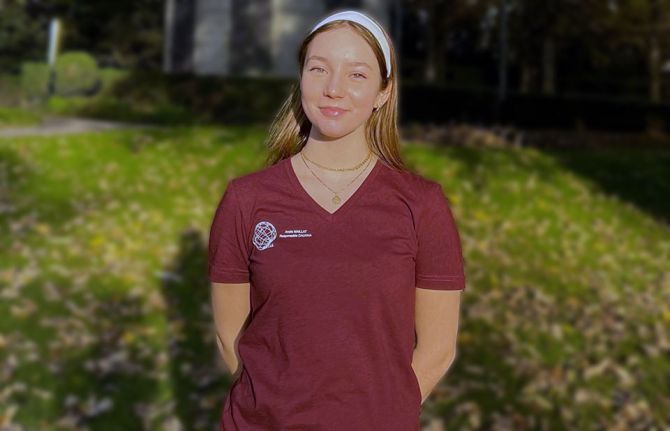
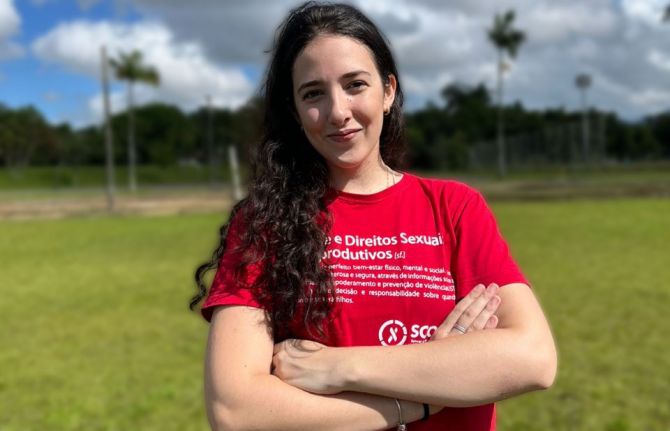
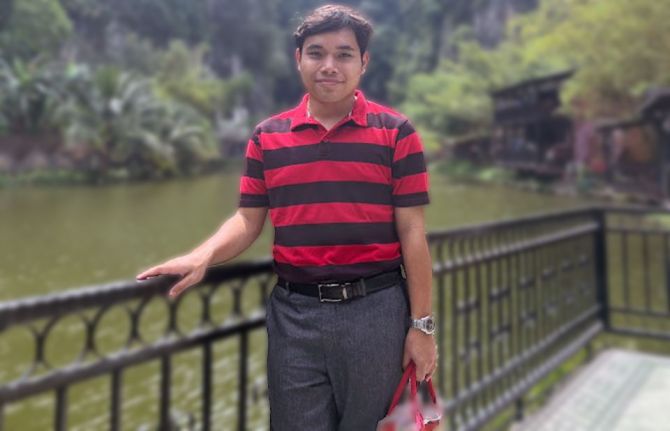
Feature Story
Future doctors take active role in HIV response to end AIDS
28 August 2023
28 August 2023 28 August 2023Medical student Anaïs Maillat, 21, joined METIS (Movement of The Students Against Inequalities in Health Access) for a simple reason. The children’s beaming smiles drew her in.
As a member organization of the International Federation of Medical Students Association (IFMSA), the Swiss Medical Students Association (SWIMSA) Switzerland, launched the program CALWHA which works with children and adolescents living with HIV and AIDS in Tanzania.
Ms. Maillat focused on the Mwanza region where the rate of HIV infection is higher than the national average as its project coordinator.
“Our project is currently helping more than 400 children living with HIV and AIDS,” she said. “We organize activity days in hospitals where children and adolescents get check-ups, medicine, a meal, educational activities, and a safe space to play,” she added.
Activity days are held on three Saturdays of each month for children and adolescents aged 0 – 19 years old to improve clinic attendance and treatment adherence. “For many children, the hospital is far, so parents miss work, which has a cost,” Ms. Maillat explained. The project pays for people’s transportation to the hospital and that help allows many children to stay on treatment, according to CALWHA.
Like Ms. Maillat, medical students worldwide are taking an active role in the HIV response in their native countries.
Ana Laura Nascimento, a 21-year-old medical student and member of IFMSA Brazil, became an advocate for sexual and reproductive health rights through Pense Positivo, a project that organizes HIV awareness activities for houseless individuals and sex workers.
During her school years, Ms. Nascimento said she realized there was a clear demand to educate her peers about sex due to sexually transmitted infection (STI) outbreaks. “We organized Testar é Saber (“testing is knowing”), a campaign to encourage students to get tested for HIV, syphilis, hepatitis B and C,” she said.
That led to information sessions at the university including doctors, public health professionals, and the municipality. As a result, the school now offers testing events twice a year.
Ms. Nascimento went on to lead and become a member of IFMSA Brazil’s National Officers for Sexual and Reproductive Health (NORA).
In Malaysia, another NORA leader, Joseph Hamzah Anwar, is a 25-year-old medical student and a member of Society of MMA Medical Students. He became an outreach worker for People Like Us Hang Out (PLUHO) - an LGBTQ organization based in Kuala Lumpur, Malaysia that focuses on mental health.
“I met doctors who are not sensitized to issues that HIV comes with and this discourages clients from seeking treatment,” he said. In his view, the younger generation of doctors need to be aware and knowledgeable, so people stay on HIV treatment and live their lives like any other person.
As members of IFMSA, these future doctors have been organizing activities with communities as part of the organization’s aim to strengthen its involvement in the HIV response. They also seek to educate the public about HIV and AIDS and reduce stigma and discrimination in all healthcare facilities.
Representing more than a million medical students as their members, IFMSA also contributes to the Global Partnership to End All Forms of HIV-Related Stigma and Discrimination and holds a leadership role in The PACT, a global coalition of youth-led organizations advocating for sexual and reproductive health rights.
On August 24, IFMSA, with the International Pharmaceutical Students’ Federation (IPSF) launched a Declaration of Commitment to HIV and AIDS. The Declaration will guide IFMSA and IPSF in their future efforts to contribute to the AIDS response.
All three future doctors hope that the declaration will encourage others to join the global youth movement to end AIDS. “With the activities outlined in the declaration, I believe we are on the right track to end AIDS by 2030,” Mr. Anwar said.
“I truly believe that young people have the potential to unite to end AIDS,” Ms. Maillat said. “We are the generation of unity. Let’s do this. You and me.”
Related

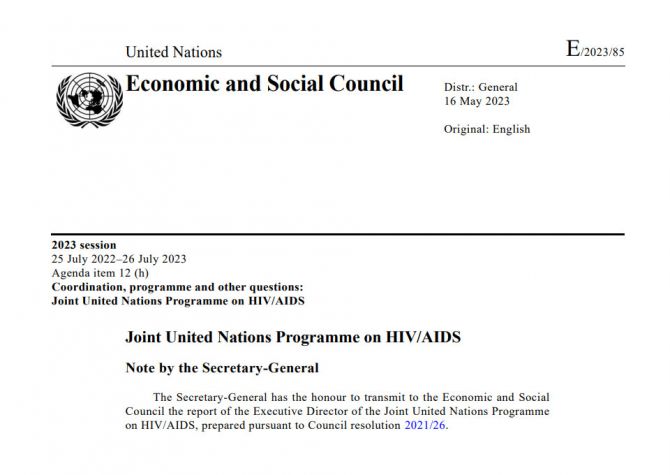
Feature Story
ECOSOC adopts its 2023 resolution on the Joint United Nations Programme on HIV/AIDS
03 August 2023
03 August 2023 03 August 2023On 25 July, the United Nations Economic and Social Council (ECOSOC) adopted its 2023 resolution on the Joint United Nations Programme on HIV/AIDS by consensus, at a meeting presided over by the Vice-President of ECOSOC, Ambassador Paula Narváez, Permanent Representative of Chile to the United Nations in New York.
At the meeting, the Council considered the 2023 report of the UNAIDS Executive Director, which was introduced by UNAIDS Deputy Executive Director for Programmes, Ms Angeli Achrekar.
Following the debate, Germany, presented a joint statement by Germany and Kenya introducing the 2023 Resolution on the Joint Programme. The two countries had co-facilitated the negotiations in Geneva, Switzerland, earlier in July in their capacity as, respectively, the Chair and Vice-Chair of the UNAIDS Programme Coordinating Board.
They emphasized their gratitude to Member States for having ensured a consensus resolution that stresses the need to act with urgency to meet the 2025 milestones and targets, as a prerequisite for ending the AIDS epidemic by 2030. The Resolution also notes the importance of the 2021 Political Declaration on HIV and AIDS as well as the Global AIDS Strategy 2021-2026.Other members taking the floor, including Australia, Brazil, the Islamic Republic of Iran, Mexico, South Africa, and the United States of America also commended the co-facilitators for the consultative process.
Germany and Kenya cautioned that despite continued global progress many countries are off track. They expressed concern about the persistent funding shortfalls experienced by the Joint Programme and its negative impact on the capacity to implement its annual workplan and called for renewed efforts to fully fund the core Unified Budget, Results and Accountability Framework, calling upon existing donors to maintain and step up their contributions, and inviting new donors to join from both the public and private sectors.
The resolution maintains its call for reinvigorated efforts to protect human rights and promote gender equality in the context of HIV, expressing concern over laws, policies, and practices that hinder access for all people to HIV prevention, treatment, care, and support service, and highlighted the attention needed by key populations, recognizing that efforts to achieve universal health coverage should be informed by the lessons learned from the multisectoral HIV response, including community-based and community-led service delivery. Members speaking from the floor also reiterated the importance of these lessons in preparation for and response to future pandemics.
“The inclusive and multisectoral Joint Programme model established by ECOSOC –which brings together the expertise of several eleven United Nations organizations and is governed by an inclusive Board that includes people most affected by HIV as its members – remains more relevant than ever. The important role of civil society in the AIDS response is recognized in the resolution you will be adopting today”, said Ms Achrekar, addressing the representatives of permanent missions in New York.
Related resources
Related

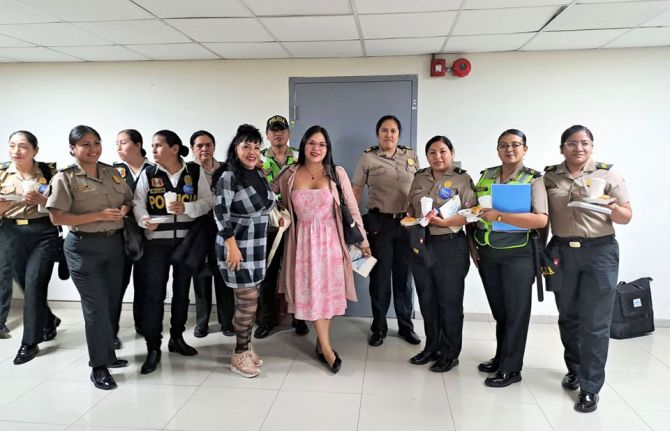
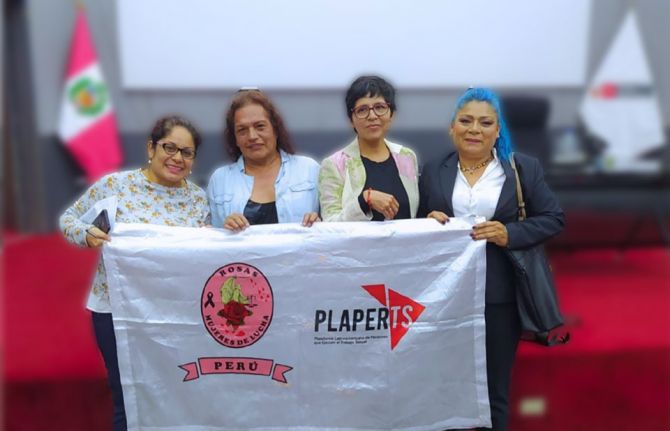
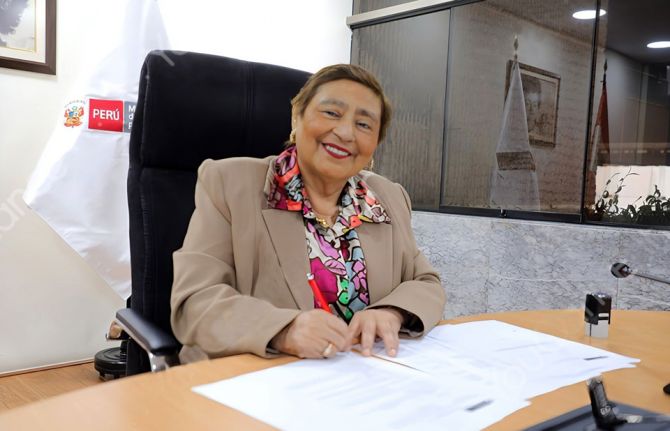
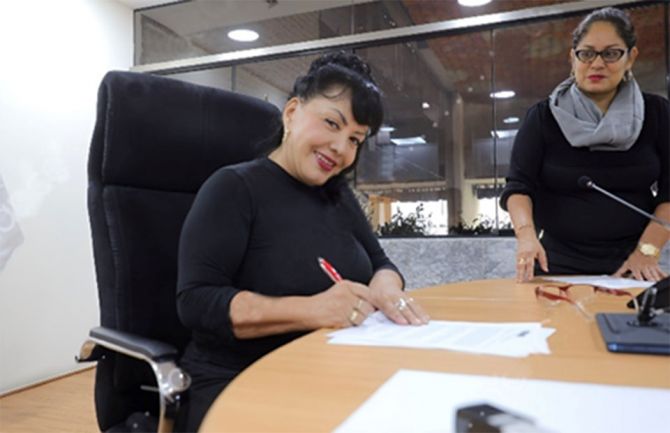
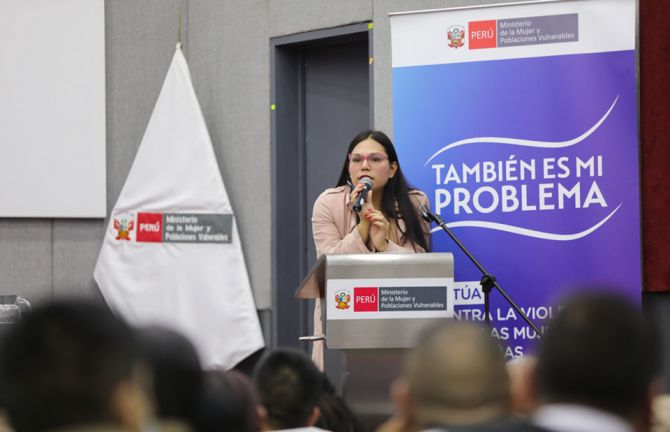
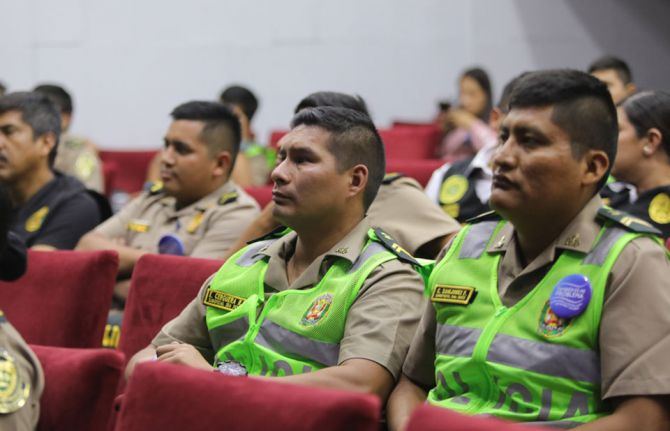
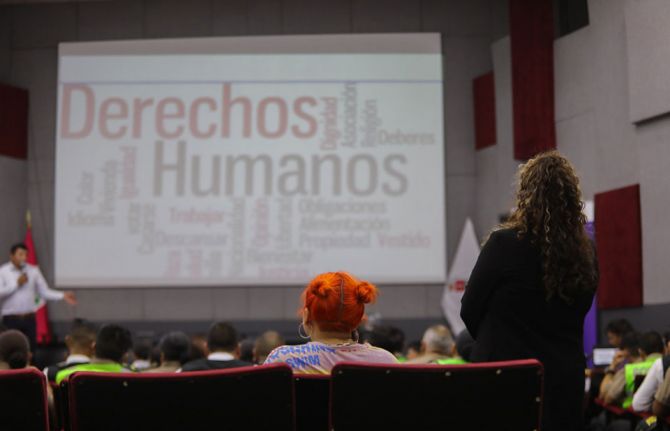
Feature Story
Addressing violence against women sex workers in Peru
27 July 2023
27 July 2023 27 July 2023Ángela Villón Bustamante has been a sex worker and human rights activist for her community in Peru for almost 25 years. She has experienced first-hand the violence against sex workers. After she was beaten by a policeman in 1996, she began her activism.
"I don't want anyone else to end up almost dead like I did. The organization Miluska Vida y Dignidad (Miluska Life and Dignity, in English) is the organisation I created almost 30 years ago to find justice for those of us violated by public forces", recalls Ángela. "It was the first sex workers' organisation in Peru, and its name is in honour of my dear friend Miluska, who died after being beaten by one of them."
In the same years, transgender woman Alejandra Fang also was imprisoned for sex work, and a police officer asked her to have sex to be released. "I was forced into sex because, as a trans woman, I had no alternative. As a result of that traumatic situation, I decided to become an activist," says Alejandra.
Like Ángela, Alejandra also turned her negative experiences into opportunities for others so that no one would have to go through the same situations. She then became part of the Casa Trans Zuleymi and now leads Trans Organizacion Feminista (Feminist Trans Organization).
According to the Peruvian Ombudsman's Office, 95.8% of trans women have been victims of violence, 62.2% are engaged in sex work due to lack of employment opportunities, and only 5.1% have completed secondary education.
More than 10 cis and transgender sex workers have been murdered since the beginning of this year in Peru – four transgender sex workers in one week alone, by February 1. "This situation spread to other provinces in Peru, and sex workers had to go into hiding for weeks to protect their lives," says Ángela. "We have been unable to work and care for our basic personal and family needs."
The criminalisation of sex workers prevents them from seeking justice when they are harassed, physically harmed, or otherwise discriminated against. "We often do not report abuse to avoid further mistreatment and because of the stigma attached to our occupation," explains the activist.
"Whether they are living with HIV, migrants, Afro-descendants or indigenous– all these intersections generate exponential stigma and discrimination and place them in extreme vulnerability," says UNAIDS Director for the Andean Countries (Peru, Ecuador, Bolivia, and Colombia), Andrea Boccardi. "It puts them in such a precarious situation that it makes it difficult to access health services, food security, employment, education, and justice. Although self-employed sex work in Peru is legal, they have always been criminalized."
Given the situation of violence against sex workers in Peru, the organizations led by Angela and Alejandra, along with other organizations such as the Asociación Civil T.S. Rosas Mujeres de Lucha, are among those implementing a plan with the Peruvian Ministry of Women and Vulnerable Populations to address violence against sex workers in the country.
More than 100 police officers have already been trained by courses designed and facilitated by cis and transgender sex workers. The training provided knowledge on human rights, stigma, and discrimination, and their essential role as guarantors of justice to contribute to adopting a human rights-based approach in their work throughout the country.
Besides coordinating and facilitating a working group to fight violence and promote the fundamental rights of sex workers with several local and regional organizations and networks, UNAIDS has also partnered with the Public Defender's Office of the Ministry of Justice and Human Rights of Peru and with representatives of the sex workers' community to develop a protocol for the provision of legal assistance and victim advocacy services to sex workers.
"After so many years, I feel that our voice is now being heard," says Ángela.
Related resources
Find out more about HIV criminalization:
Region/country
Related

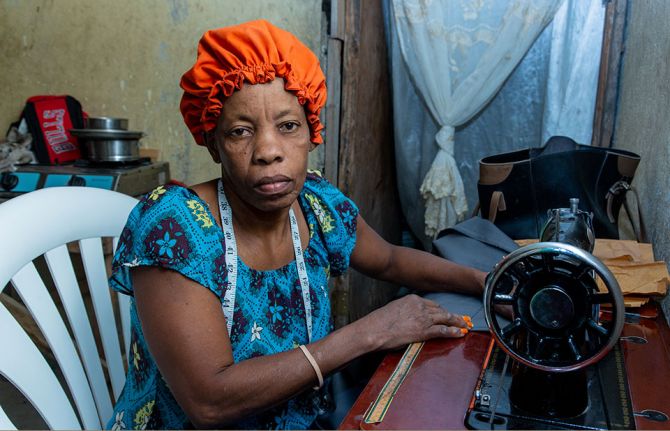
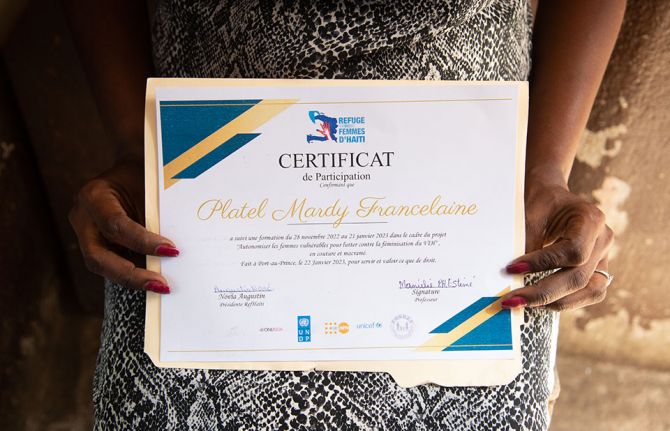
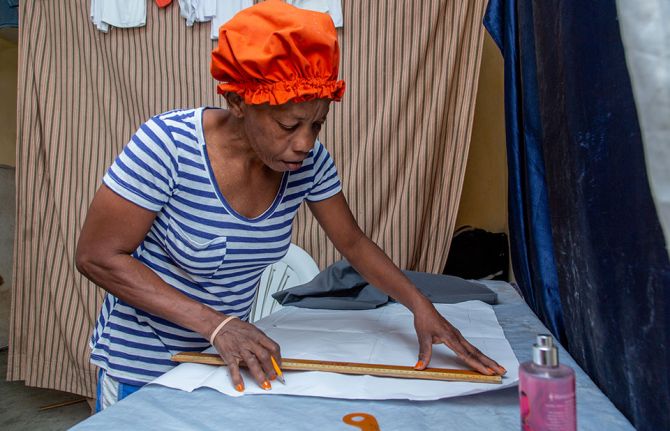
Feature Story
Supporting women and girls affected by gang violence in Haiti
29 June 2023
29 June 2023 29 June 2023At Refuge des Femmes d'Haiti, a small women's community-based organization in the commune of Croix-des-Bouquets, Port-au-Prince, Martha Norcimè, a 34-year-old pregnant woman from the nearby commune of Delmas, completes her training in sewing and macramé—a form of textile produced using knotting techniques.
She is part of a group of vulnerable women deeply affected by the gang violence and warfare that has impacted several areas of the capital since early 2022. Most of her peers came from Croix-de-Bouquets. All of them—including women with HIV—living in challenging circumstances, who have seen their livelihood completely disappear throughout these past two years as violence rose.
"I will soon give birth to my first child. I used to sell food and cleaning products that I was buying on the Haitian-Dominican border between Jimani and Malpasse, and I was then selling in markets in the city and in my neighborhood,” recalls Martha. “But I could no longer continue, given the blockade of the North city entry controlled by armed gangs. So many women traders are raped, kidnapped, or robbed by them."
In the fall of 2022, a joint UN project coordinated by the UNAIDS Country Office in Haiti, with participation from UNFPA, UNDP, and UNICEF, has been launched in partnership with Refuge des Femmes d’Haiti and with the support of FOSREF, a Haitian non-governmental organization. The goal is to support women and girls living this daily reality by empowering and giving them the tools to remain healthy and overcome the feminization of HIV in Haiti.
Haiti’s significant gains made over the past decade in controlling its HIV epidemic are now under threat, particularly in the capital, where a third of the 11.8 million Haitians reside. The brunt of an ongoing socio-economic and security crisis triggered by the assassination of former President Jovenel Moïse in July 2021 is borne by adolescent girls, young and adult women.
The feminization of HIV has long been a feature of the Haiti pandemic with HIV prevalence for females at 2.3%, compared to 1.6% among men. Still, the continuing multi-faced and profound crisis, fueled by such levels of violence, is exposing thousands of women to HIV infection.
In October 2022, a joint human rights report published by the United Nations Integrated Office in Haiti (BINUH) and the Office of the United Nations High Commissioner for Human Rights (OHCHR), entitled Sexual violence in Port-au-Prince: a weapon used by gangs to instill fear denounced collective rape by gangs in the capital as a weapon of war. In May 2023, research conducted by the Global Initiative Against Transnational Organized Crime in Cité-Soleil, another impoverished commune in Port-au-Prince deeply hit by gang activity, found that 80% of the women and girls who participated in the study had been victims of one or more forms of gender-based violence by one or multiple perpetrators.
"We work closely with UN Agencies to support women, victims of violence, make them financially independent and thus reduce the feminization of HIV, sexual and gender-based violence and maternal and neonatal mortality," says Novia Augustin, President of Ref-Haiti, and of the Federation of Women Organizations for the Equality and Human Rights (FEDOFEDH). "Difficulties are several, but the biggest is insecurity and the lack of financial resources. My motivation comes from our results: When I look at the satisfaction on the faces of the women we have accompanied, the recognition they show, I tell myself that it is worth it, despite all the difficulties encountered and the risks incurred."
Martha recalls how Novia opened the door to her for intensive training every day from 8 a.m. to 4 p.m. At the time, she was already pregnant. And despite the pregnancy-related fatigue, she did not miss a single day of class. “I can sew skirts, bonnets, blouses and even sandals!" she says proudly. "But I can't do anything now because of this crisis. Sometimes I even miss my pre-natal appointments with the doctor just because I am afraid to go out."
Besides training, Ref-Haiti also included discussions on HIV risk and prevention, gender-based violence, sexual and reproductive health, family planning, and cholera. The awareness-raising activities targeted women beneficiaries and hundreds of young girls of other affected communes.
"We are working to support an integrated health response for women and girls so severely affected by gang violence and by socio-economic inequality”, says Christian Mouala, UNAIDS Country Director for Haiti. “We are proud of women-led local organizations such as Refuge des Femmes and their immeasurable efforts to support women to overcome the challenges they face."
All photos by UNDP Haiti
Region/country

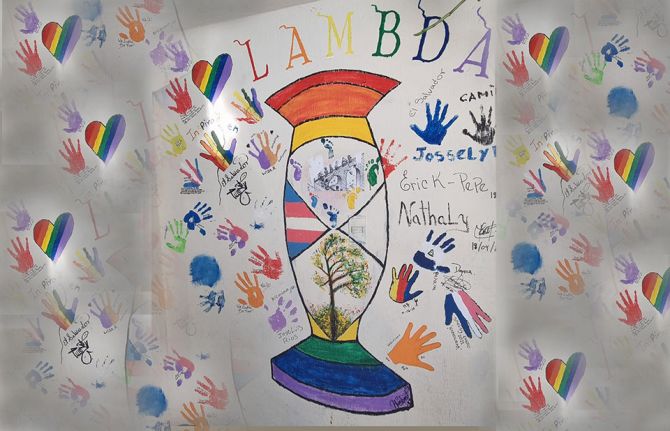

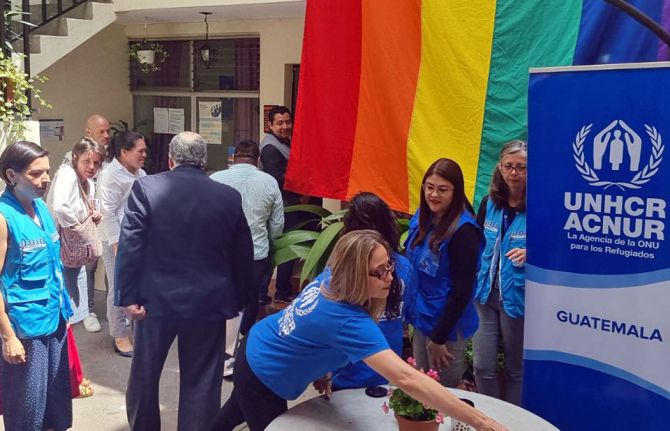
Feature Story
Asociación Lambda: the second home for LGBTIQ+ migrants in Central America
27 June 2023
27 June 2023 27 June 2023As millions of people around the world march in the streets of several big cities this month of June to celebrate and honor Pride Month, in Guatemala, over 200 LGBTIQ+ people in human mobility - applicants for refugee or asylum status or nationals and foreigners in transit – and in need of protection find every year in Asociación Lambda their reason to celebrate pride and life through psychosocial care, legal support, medical follow-up and the provision of a shelter or a safe space to be who they are.
Roberto Gonzales*, a Colombian migrant, is one of them. Like hundreds of thousands of other migrants, he overcame the exhausting experience of crossing the Darien Gap, a journey in which the dangers include natural hazards and criminal gangs known for inflicting violence, including sexual abuse and robbery. According to statistics from the Government of Panama, from January to April 2023, a record number of 127,000 people crossed the Darien.
Unlike many people who go after the American dream, Gonzales wants to stay in Guatemala because the country has a lot to offer. "LAMBDA, for me, is a unique platform of empowerment. They listen to you; they invite you for training twice a month", he says. "Through Lambda, I have formed a network of friends and support. One should not forget the importance of mental health if we want to move forward."
Asociación Lambda works to improve the livelihoods of this marginalized group by providing technical assistance to community groups in management, governance, leadership, and entrepreneurship skills. Lambda's activities strengthen community organizations through education and training and build action and peer-to-peer learning networks.
Andres Martinez*, from Nicaragua, is thankful to Lambda for their support in successfully processing his refugee claim. In his country, he was persecuted for being a journalist and suffered violence in his community because of his sexual orientation. "It is difficult to reinvent oneself in another country, but my favorite color is green, the color of hope, because I hope one day to return to my country," says Martinez. "Here, at Lambda, I felt supported by a brother. One feels very safe with the staff. The shelter is my second home."
As in many parts of the world, LGBTQI+ people in Central America face a complex reality that exposes them to different forms of violence and discrimination and puts their physical integrity at risk, limits their life options, often forces them to flee their homes, and, in some cases, to escape their own countries. The National LGBTIQ+ Human Rights Observatory, which Lambda coordinates, documented at least 29 violent deaths of LGBTIQ+ people in 2022 in the region, killed for reasons allegedly related to their sexual orientation, gender identity, and gender expression.
As part of the LGBTIQ+ Pride Month activities, Lambda opened the doors of its shelter to a United Nations delegation in Guatemala led by the Resident Coordinator Miguel Barreto for an exchange with migrants hosted and receiving care in their safe space. "I came away from the dialogue more human and supportive, and convinced of the centrality of the United Nations commitment to end discrimination and exclusion, reduce vulnerabilities, and promote the human rights of every human being," said Barreto after the visit and the dialogues.
Along with UNAIDS, several UN agencies, funds, and programmes, like the United Nations High Commissioner for Refugees (UNHCR), the International Organization for Migration (IOM), and the Office of the High Commissioner for Human Rights (OHCHR), have joined forces to support Lambda in different fronts hosting, sheltering and supporting LGBTIQ+ migrants and those in transit or in need of protection.
"Before coming to Lambda, very few of our clients had had sufficient access to information about HIV risks and prevention, many of them are victims of sexual crimes, and it is only when they arrive at Lambda that they are offered information and testing free of charge," explains Carlos Valdés, Director of Lambda. "Some people were already aware of their HIV diagnosis but did not know how to access care services."
Globally in 2021 gay men and other men who have sex with men have a 28 times higher risk of acquiring HIV than the rest of the adult (15-49) male population, and among transgender women, the risk is 14 times higher than adult women (15-49) in the general population
Among over 200 people who came to Lambda in 2022, 19% of the men and 17% of the women lived with HIV.
"The vast majority of these people were trans women and gay men, mainly from Guatemala, Honduras, Venezuela, and Nicaragua," explains Marie Engel, UNAIDS Representative for Guatemala, Nicaragua, and Honduras. "We know that these situations of stigma, discrimination, and violence create barriers to accessing health services, including HIV. We must recognize the greater vulnerability of the LGBTQI+ community to HIV and support their right to health and dignity."
*All names of Lambda beneficiaries in this report have been changed for people’s safety.
Region/country

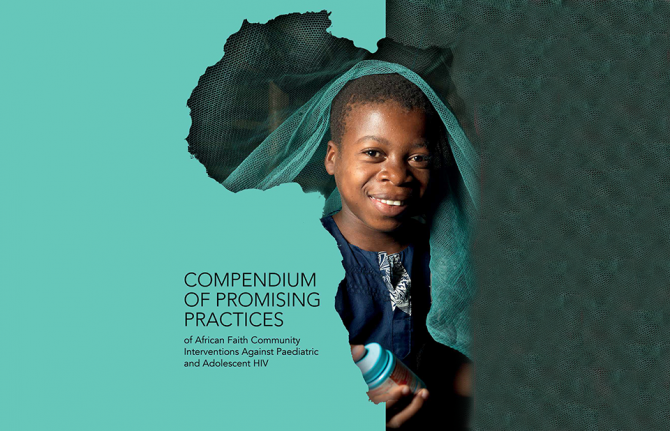
Feature Story
Highlighting the role that faith communities are playing to end AIDS in children and adolescents
27 June 2023
27 June 2023 27 June 2023Faith communities and faith-based organizations have a long history of caring for children and adolescents living with and affected by HIV. However, these efforts have not been well documented and hence their contributions have not been well understood nor resourced. Until now.
UNAIDS and PEPFAR have co-published the Compendium of Promising Practices on the Role of African Faith Community Interventions to End Paediatric and Adolescent HIV which goes a long way to addressing this dearth of information. The Compendium documents 41 promising practices that provide evidence of the core roles that faith communities have played in identifying undiagnosed children living with HIV, improving continuity of treatment, supporting adolescents to access psychosocial support, care and treatment, and enabling peer support groups to empower children and adolescents living with HIV. It also documents how faith leaders have driven advocacy to tackle stigma and discrimination and pushed governments for targets to be achieved. Some specific promising practices include:
- In Zambia, by expanding integrated health service delivery through Health Posts within places of worship, more children were identified when tested for HIV in faith community sites compared with those tested in non-faith community sites, averaging 15% and 7%, respectively, for the semi-annual period in the 2021 Financial Year.
- In Nigeria, a congregation-based approach to HIV testing in pregnant women, using Baby Showers, found the intervention improved HIV testing among pregnant women (with 93% linkage) and their male partners, who were 12 times more likely to know their status, compared with partners of women giving birth who had not participated in the intervention.
- Religious leaders and faith-based organizations in several countries have enrolled as Faith Paediatric Champions and have strengthened community engagement through teams sometimes - Christian and Muslim - including religious leaders, youth leaders, as well as men’s and women’s group leaders. Faith Paediatric Champions have advocated to governments and community members for all children and adolescents to be supported to access HIV care and treatment.
The Compendium showcases the transformative impact of faith-based approaches, highlighting innovative strategies, programmes, and interventions that have saved lives and nurtured the well-being of young individuals. By combining the power of faith with evidence-based interventions, these organizations have created a synergy that reaches far beyond medical treatment. They have fostered a sense of belonging, love, and support, creating safe spaces where children and adolescents affected by HIV can find solace, guidance, and empowerment.
The global response to end AIDS in children continues to be inadequate. Every hour eleven children die of AIDS. 1.7 million children are living with HIV and while three quarters (76%) of adults living with HIV are on treatment, only half (52%) of children are. Children living with HIV are even more vulnerable than adults: while children constitute 4% of people living with HIV, they represent 15% of AIDS-related deaths. In their Foreword to the Compendium Winnie Byanyima, the Executive of UNAIDS and John Nkengasong, US Global AIDS Coordinator and Special Representative for Global Health Diplomacy say: “It is a disgrace that the world is not on track to end AIDS in children” and they describe the inequality between adults and children as “heartbreaking.”
However, they also issue a rallying call: “We can end AIDS in children. We must end AIDS in children. Together, we will end AIDS in children. This informative, inspiring, Compendium will be used to save and change children’s lives.”
Partners
The Compendium of promising practices
Download full report | executive summary



